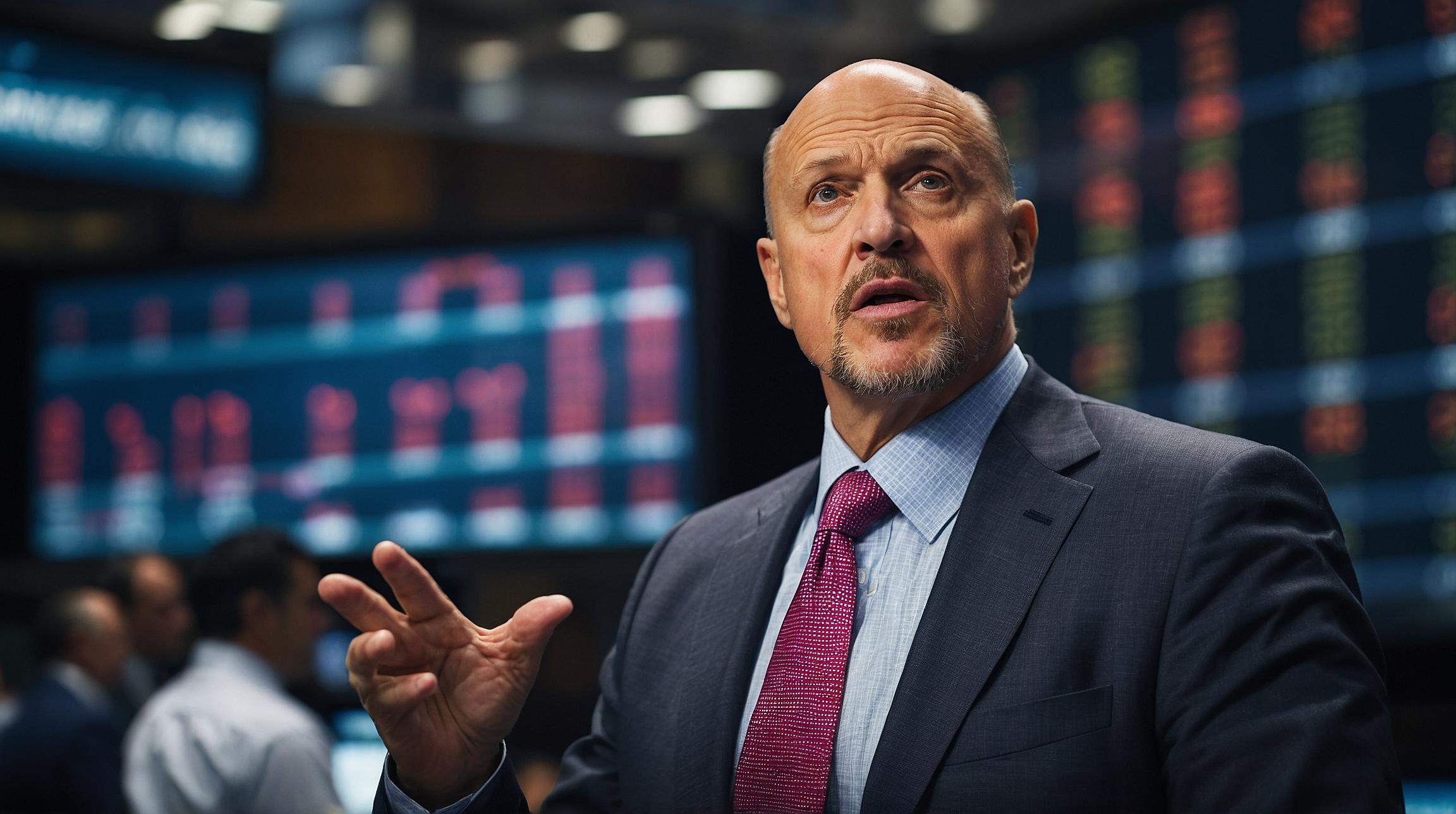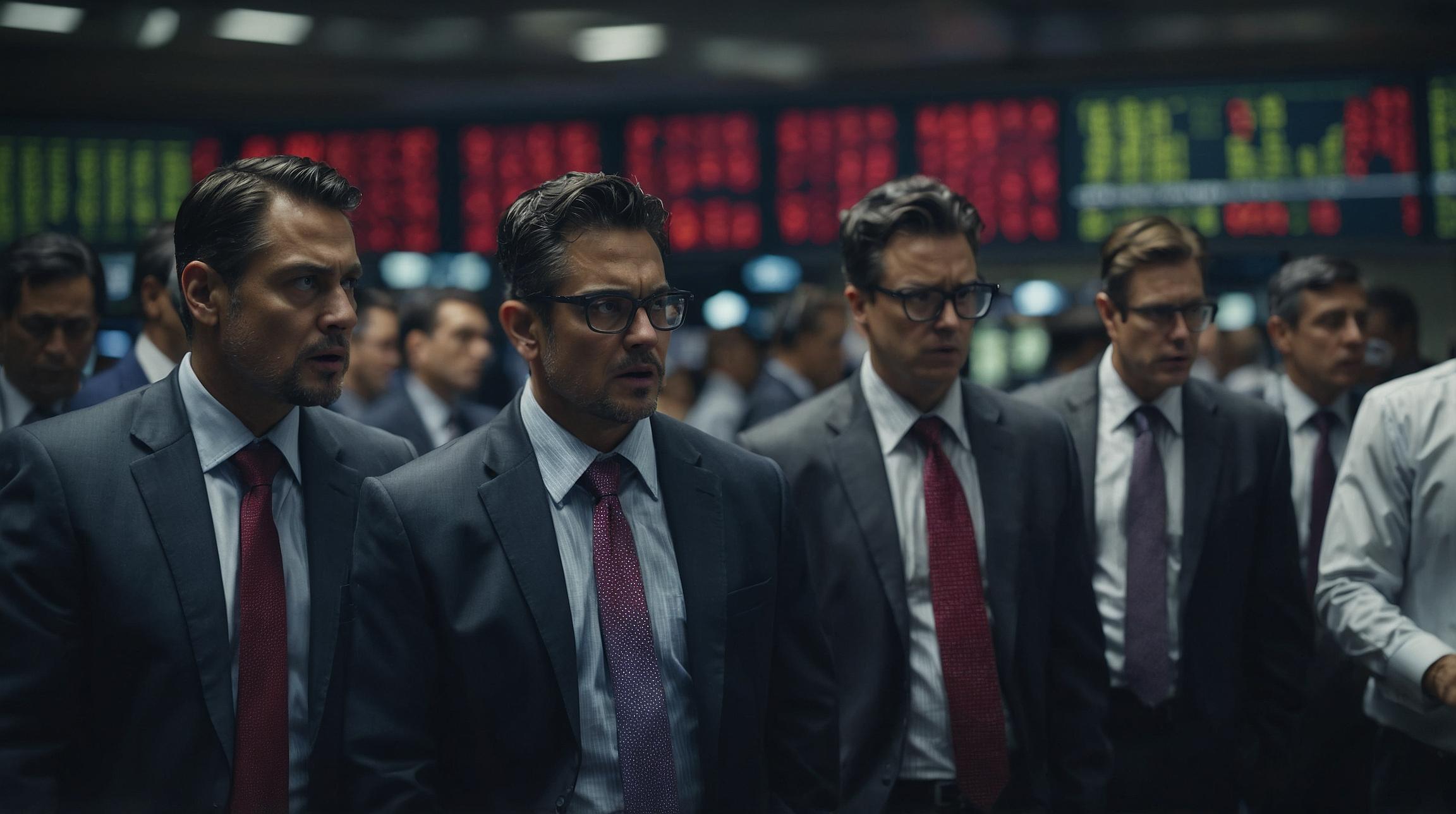The $55 billion acquisition of Electronic Arts offers a significant premium to shareholders and removes the company from public market pressures, potentially enabling a strategic reset. However, the substantial debt load and entrenched management philosophy pose risks to innovation and workforce stability. !-- wp:paragraph -->
- Opportunities: Freedom from quarterly earnings pressures may foster creative experimentation and long-term investment in game development.
- Risks: Heavy debt could lead to cost-cutting measures, including layoffs and IP divestitures, while reinforcing reliance on monetization-heavy live-service models.
- Market dynamics: Expansion into mobile gaming could leverage PIF’s existing assets, potentially broadening EA’s revenue base.
- Community relations: Persistent gamer dissatisfaction may hamper brand loyalty unless product innovation and consumer trust are addressed.
FinOracleAI — Market View
The $55 billion acquisition of Electronic Arts offers a significant premium to shareholders and removes the company from public market pressures, potentially enabling a strategic reset. However, the substantial debt load and entrenched management philosophy pose risks to innovation and workforce stability. !-- wp:paragraph -->- Opportunities: Freedom from quarterly earnings pressures may foster creative experimentation and long-term investment in game development.
- Risks: Heavy debt could lead to cost-cutting measures, including layoffs and IP divestitures, while reinforcing reliance on monetization-heavy live-service models.
- Market dynamics: Expansion into mobile gaming could leverage PIF’s existing assets, potentially broadening EA’s revenue base.
- Community relations: Persistent gamer dissatisfaction may hamper brand loyalty unless product innovation and consumer trust are addressed.
FinOracleAI — Market View
The $55 billion acquisition of Electronic Arts offers a significant premium to shareholders and removes the company from public market pressures, potentially enabling a strategic reset. However, the substantial debt load and entrenched management philosophy pose risks to innovation and workforce stability. !-- wp:paragraph -->- Opportunities: Freedom from quarterly earnings pressures may foster creative experimentation and long-term investment in game development.
- Risks: Heavy debt could lead to cost-cutting measures, including layoffs and IP divestitures, while reinforcing reliance on monetization-heavy live-service models.
- Market dynamics: Expansion into mobile gaming could leverage PIF’s existing assets, potentially broadening EA’s revenue base.
- Community relations: Persistent gamer dissatisfaction may hamper brand loyalty unless product innovation and consumer trust are addressed.
“I don’t know how EA is going to service this debt without significant layoffs, studio closures, and possibly IP sell-off.”
Michael Futter, Founder of F-SquaredFinOracleAI — Market View
The $55 billion acquisition of Electronic Arts offers a significant premium to shareholders and removes the company from public market pressures, potentially enabling a strategic reset. However, the substantial debt load and entrenched management philosophy pose risks to innovation and workforce stability. !-- wp:paragraph -->- Opportunities: Freedom from quarterly earnings pressures may foster creative experimentation and long-term investment in game development.
- Risks: Heavy debt could lead to cost-cutting measures, including layoffs and IP divestitures, while reinforcing reliance on monetization-heavy live-service models.
- Market dynamics: Expansion into mobile gaming could leverage PIF’s existing assets, potentially broadening EA’s revenue base.
- Community relations: Persistent gamer dissatisfaction may hamper brand loyalty unless product innovation and consumer trust are addressed.
“I don’t know how EA is going to service this debt without significant layoffs, studio closures, and possibly IP sell-off.”
Michael Futter, Founder of F-SquaredFinOracleAI — Market View
The $55 billion acquisition of Electronic Arts offers a significant premium to shareholders and removes the company from public market pressures, potentially enabling a strategic reset. However, the substantial debt load and entrenched management philosophy pose risks to innovation and workforce stability. !-- wp:paragraph -->- Opportunities: Freedom from quarterly earnings pressures may foster creative experimentation and long-term investment in game development.
- Risks: Heavy debt could lead to cost-cutting measures, including layoffs and IP divestitures, while reinforcing reliance on monetization-heavy live-service models.
- Market dynamics: Expansion into mobile gaming could leverage PIF’s existing assets, potentially broadening EA’s revenue base.
- Community relations: Persistent gamer dissatisfaction may hamper brand loyalty unless product innovation and consumer trust are addressed.
“Perhaps the most common complaint is that EA fails to innovate,” noted gaming publication Inverse in 2024, citing repetitive content and overpriced expansions.Strategic Outlook: Innovation vs. Stability
With EA’s shift to private ownership, the company is no longer subject to the pressures of quarterly earnings reports, theoretically enabling a pivot toward greater creative risk-taking. However, industry experts remain divided on whether this will translate into meaningful change. !-- wp:paragraph --> Michael Pachter, managing director at Wedbush Securities, anticipates a continued emphasis on live-service games and expansion into mobile platforms, leveraging PIF’s existing mobile game assets through Savvy Games Group. Conversely, Michael Futter of F-Squared warns that the $20 billion debt burden accompanying the buyout will necessitate reliance on proven revenue streams and may trigger layoffs, studio closures, or IP divestitures. !-- wp:paragraph -->“I don’t know how EA is going to service this debt without significant layoffs, studio closures, and possibly IP sell-off.”
Michael Futter, Founder of F-SquaredFinOracleAI — Market View
The $55 billion acquisition of Electronic Arts offers a significant premium to shareholders and removes the company from public market pressures, potentially enabling a strategic reset. However, the substantial debt load and entrenched management philosophy pose risks to innovation and workforce stability. !-- wp:paragraph -->- Opportunities: Freedom from quarterly earnings pressures may foster creative experimentation and long-term investment in game development.
- Risks: Heavy debt could lead to cost-cutting measures, including layoffs and IP divestitures, while reinforcing reliance on monetization-heavy live-service models.
- Market dynamics: Expansion into mobile gaming could leverage PIF’s existing assets, potentially broadening EA’s revenue base.
- Community relations: Persistent gamer dissatisfaction may hamper brand loyalty unless product innovation and consumer trust are addressed.
- EA was labeled “Worst Company in America” by Consumerist.com in 2012 and 2013.
- In 2018, USA Today ranked EA as the fifth most disliked U.S. company.
- Backlash intensified over controversial mechanics such as loot boxes, which prompted regulatory scrutiny in Europe and condemnation from U.S. lawmakers.
“Perhaps the most common complaint is that EA fails to innovate,” noted gaming publication Inverse in 2024, citing repetitive content and overpriced expansions.Strategic Outlook: Innovation vs. Stability
With EA’s shift to private ownership, the company is no longer subject to the pressures of quarterly earnings reports, theoretically enabling a pivot toward greater creative risk-taking. However, industry experts remain divided on whether this will translate into meaningful change. !-- wp:paragraph --> Michael Pachter, managing director at Wedbush Securities, anticipates a continued emphasis on live-service games and expansion into mobile platforms, leveraging PIF’s existing mobile game assets through Savvy Games Group. Conversely, Michael Futter of F-Squared warns that the $20 billion debt burden accompanying the buyout will necessitate reliance on proven revenue streams and may trigger layoffs, studio closures, or IP divestitures. !-- wp:paragraph -->“I don’t know how EA is going to service this debt without significant layoffs, studio closures, and possibly IP sell-off.”
Michael Futter, Founder of F-SquaredFinOracleAI — Market View
The $55 billion acquisition of Electronic Arts offers a significant premium to shareholders and removes the company from public market pressures, potentially enabling a strategic reset. However, the substantial debt load and entrenched management philosophy pose risks to innovation and workforce stability. !-- wp:paragraph -->- Opportunities: Freedom from quarterly earnings pressures may foster creative experimentation and long-term investment in game development.
- Risks: Heavy debt could lead to cost-cutting measures, including layoffs and IP divestitures, while reinforcing reliance on monetization-heavy live-service models.
- Market dynamics: Expansion into mobile gaming could leverage PIF’s existing assets, potentially broadening EA’s revenue base.
- Community relations: Persistent gamer dissatisfaction may hamper brand loyalty unless product innovation and consumer trust are addressed.
Persistent Criticism from the Gaming Community
Despite steady operational profits since 2015 and a portfolio featuring major franchises such as EA Sports FC, The Sims, and Battlefield, EA has encountered sustained criticism from gamers. The company’s aggressive monetization strategies—including microtransactions, loot boxes, and live-service models—have eroded goodwill among its core audience. !-- wp:paragraph -->- EA was labeled “Worst Company in America” by Consumerist.com in 2012 and 2013.
- In 2018, USA Today ranked EA as the fifth most disliked U.S. company.
- Backlash intensified over controversial mechanics such as loot boxes, which prompted regulatory scrutiny in Europe and condemnation from U.S. lawmakers.
“Perhaps the most common complaint is that EA fails to innovate,” noted gaming publication Inverse in 2024, citing repetitive content and overpriced expansions.Strategic Outlook: Innovation vs. Stability
With EA’s shift to private ownership, the company is no longer subject to the pressures of quarterly earnings reports, theoretically enabling a pivot toward greater creative risk-taking. However, industry experts remain divided on whether this will translate into meaningful change. !-- wp:paragraph --> Michael Pachter, managing director at Wedbush Securities, anticipates a continued emphasis on live-service games and expansion into mobile platforms, leveraging PIF’s existing mobile game assets through Savvy Games Group. Conversely, Michael Futter of F-Squared warns that the $20 billion debt burden accompanying the buyout will necessitate reliance on proven revenue streams and may trigger layoffs, studio closures, or IP divestitures. !-- wp:paragraph -->“I don’t know how EA is going to service this debt without significant layoffs, studio closures, and possibly IP sell-off.”
Michael Futter, Founder of F-SquaredFinOracleAI — Market View
The $55 billion acquisition of Electronic Arts offers a significant premium to shareholders and removes the company from public market pressures, potentially enabling a strategic reset. However, the substantial debt load and entrenched management philosophy pose risks to innovation and workforce stability. !-- wp:paragraph -->- Opportunities: Freedom from quarterly earnings pressures may foster creative experimentation and long-term investment in game development.
- Risks: Heavy debt could lead to cost-cutting measures, including layoffs and IP divestitures, while reinforcing reliance on monetization-heavy live-service models.
- Market dynamics: Expansion into mobile gaming could leverage PIF’s existing assets, potentially broadening EA’s revenue base.
- Community relations: Persistent gamer dissatisfaction may hamper brand loyalty unless product innovation and consumer trust are addressed.
Persistent Criticism from the Gaming Community
Despite steady operational profits since 2015 and a portfolio featuring major franchises such as EA Sports FC, The Sims, and Battlefield, EA has encountered sustained criticism from gamers. The company’s aggressive monetization strategies—including microtransactions, loot boxes, and live-service models—have eroded goodwill among its core audience. !-- wp:paragraph -->- EA was labeled “Worst Company in America” by Consumerist.com in 2012 and 2013.
- In 2018, USA Today ranked EA as the fifth most disliked U.S. company.
- Backlash intensified over controversial mechanics such as loot boxes, which prompted regulatory scrutiny in Europe and condemnation from U.S. lawmakers.
“Perhaps the most common complaint is that EA fails to innovate,” noted gaming publication Inverse in 2024, citing repetitive content and overpriced expansions.Strategic Outlook: Innovation vs. Stability
With EA’s shift to private ownership, the company is no longer subject to the pressures of quarterly earnings reports, theoretically enabling a pivot toward greater creative risk-taking. However, industry experts remain divided on whether this will translate into meaningful change. !-- wp:paragraph --> Michael Pachter, managing director at Wedbush Securities, anticipates a continued emphasis on live-service games and expansion into mobile platforms, leveraging PIF’s existing mobile game assets through Savvy Games Group. Conversely, Michael Futter of F-Squared warns that the $20 billion debt burden accompanying the buyout will necessitate reliance on proven revenue streams and may trigger layoffs, studio closures, or IP divestitures. !-- wp:paragraph -->“I don’t know how EA is going to service this debt without significant layoffs, studio closures, and possibly IP sell-off.”
Michael Futter, Founder of F-SquaredFinOracleAI — Market View
The $55 billion acquisition of Electronic Arts offers a significant premium to shareholders and removes the company from public market pressures, potentially enabling a strategic reset. However, the substantial debt load and entrenched management philosophy pose risks to innovation and workforce stability. !-- wp:paragraph -->- Opportunities: Freedom from quarterly earnings pressures may foster creative experimentation and long-term investment in game development.
- Risks: Heavy debt could lead to cost-cutting measures, including layoffs and IP divestitures, while reinforcing reliance on monetization-heavy live-service models.
- Market dynamics: Expansion into mobile gaming could leverage PIF’s existing assets, potentially broadening EA’s revenue base.
- Community relations: Persistent gamer dissatisfaction may hamper brand loyalty unless product innovation and consumer trust are addressed.
EA’s $55 Billion Acquisition: Financial Triumph Amid Industry Transition
Electronic Arts (EA), a leading video game publisher, is set to transition from a public to a private entity following a landmark $55 billion all-cash acquisition. The deal, announced on October 1, 2025, is led by the Saudi Arabian Public Investment Fund (PIF), alongside private equity firms Silver Lake and Affinity Partners. This transaction is poised to become one of the largest private equity-funded buyouts in history. !-- wp:paragraph --> Shareholders will receive $210 per share, representing a 17% premium over EA’s record stock price reached in August 2025. Market analysts, including Morningstar’s Matthew Dolgin, regard the deal as nearly certain to close without regulatory impediments, buoyed by favorable geopolitical relations and a shareholder-friendly offer. !-- wp:paragraph -->Persistent Criticism from the Gaming Community
Despite steady operational profits since 2015 and a portfolio featuring major franchises such as EA Sports FC, The Sims, and Battlefield, EA has encountered sustained criticism from gamers. The company’s aggressive monetization strategies—including microtransactions, loot boxes, and live-service models—have eroded goodwill among its core audience. !-- wp:paragraph -->- EA was labeled “Worst Company in America” by Consumerist.com in 2012 and 2013.
- In 2018, USA Today ranked EA as the fifth most disliked U.S. company.
- Backlash intensified over controversial mechanics such as loot boxes, which prompted regulatory scrutiny in Europe and condemnation from U.S. lawmakers.
“Perhaps the most common complaint is that EA fails to innovate,” noted gaming publication Inverse in 2024, citing repetitive content and overpriced expansions.Strategic Outlook: Innovation vs. Stability
With EA’s shift to private ownership, the company is no longer subject to the pressures of quarterly earnings reports, theoretically enabling a pivot toward greater creative risk-taking. However, industry experts remain divided on whether this will translate into meaningful change. !-- wp:paragraph --> Michael Pachter, managing director at Wedbush Securities, anticipates a continued emphasis on live-service games and expansion into mobile platforms, leveraging PIF’s existing mobile game assets through Savvy Games Group. Conversely, Michael Futter of F-Squared warns that the $20 billion debt burden accompanying the buyout will necessitate reliance on proven revenue streams and may trigger layoffs, studio closures, or IP divestitures. !-- wp:paragraph -->“I don’t know how EA is going to service this debt without significant layoffs, studio closures, and possibly IP sell-off.”
Michael Futter, Founder of F-SquaredFinOracleAI — Market View
The $55 billion acquisition of Electronic Arts offers a significant premium to shareholders and removes the company from public market pressures, potentially enabling a strategic reset. However, the substantial debt load and entrenched management philosophy pose risks to innovation and workforce stability. !-- wp:paragraph -->- Opportunities: Freedom from quarterly earnings pressures may foster creative experimentation and long-term investment in game development.
- Risks: Heavy debt could lead to cost-cutting measures, including layoffs and IP divestitures, while reinforcing reliance on monetization-heavy live-service models.
- Market dynamics: Expansion into mobile gaming could leverage PIF’s existing assets, potentially broadening EA’s revenue base.
- Community relations: Persistent gamer dissatisfaction may hamper brand loyalty unless product innovation and consumer trust are addressed.













